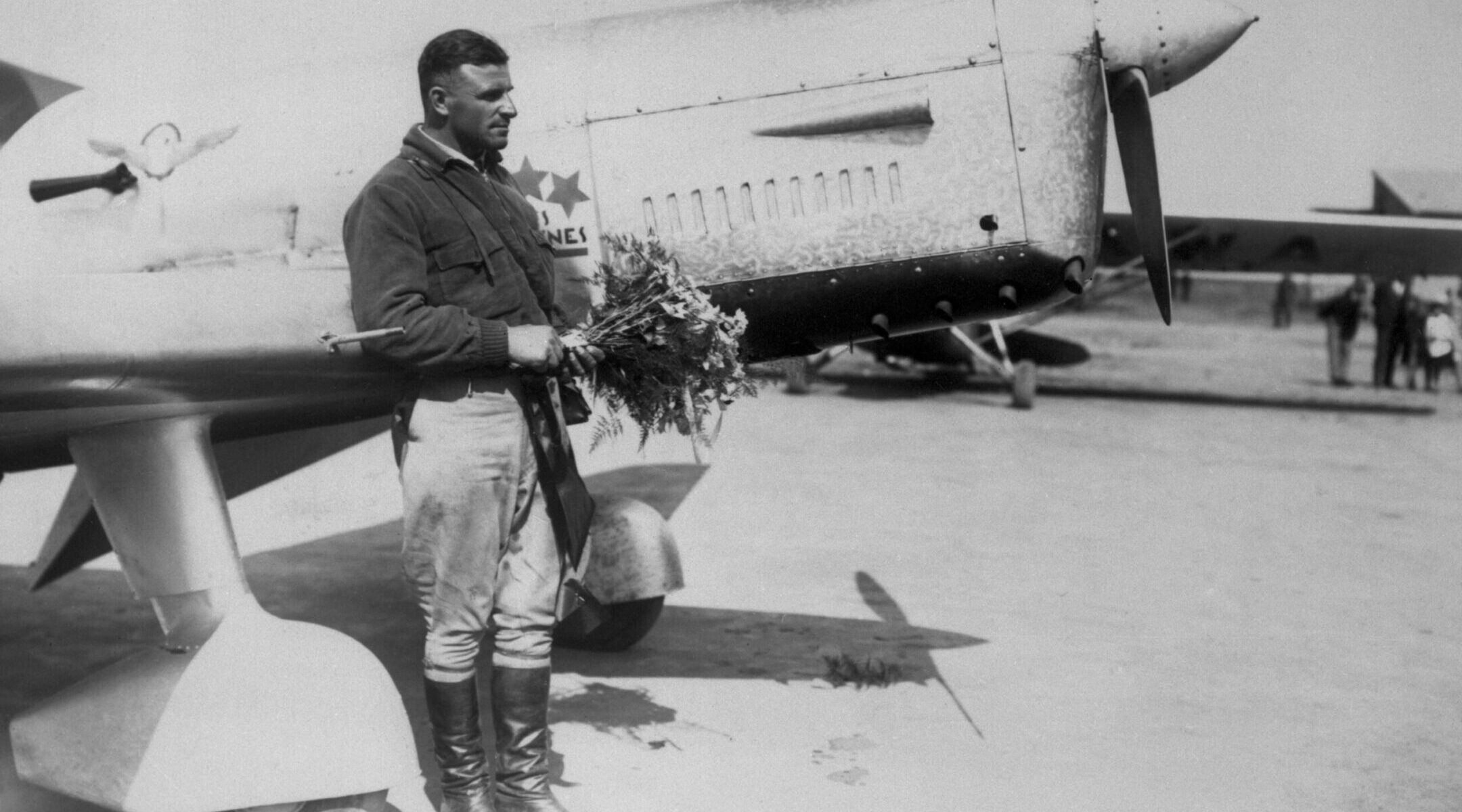(JTA) — A probe into a Latvian officer who led mass killings of Jews during World War II has been dropped — for a third time.
Herbert Cukurs had a senior position in the Arajs Kommando, a Nazi death squad in German-occupied Latvia. In late 1941, he personally took part in mass murder at the Riga Ghetto and the nearby Rumbula forest, earning him a title as “The Butcher of Riga.”
But the Latvian Prosecutor General’s Office closed its case against Cukurs on April 4, according to Ilya Lensky, the director of the Jews in Latvia Museum who presented research on Cukurs. Prosecutor Juris Ločmelis determined that Cukurs’ actions did not constitute the criminal offense of “genocide” according to Latvian law.
Two previous investigations into Cukurs were closed in 2019 and 2023. When the first case was closed, prosecutors claimed that no living witnesses could testify to his crimes. Then Davids Lipkins, a lawyer representing alleged victims, found two Holocaust survivors living in Israel who did testify — including one who said that he saw Cukurs shooting people in Riga.
Still, the prosecution argued a third time that there was insufficient trustworthy evidence to show Cukurs participated in genocide. The two survivors who provided testimony have died, and Lipkins plans to appeal the decision.
Lensky is also taking part in an appeal on behalf of the Latvian Jewish community. He said he was mystified by the prosecution’s continued decisions to dismiss Cukurs’ involvement in the Arajs Kommando.
“He was a high-ranking member of the Latvian auxiliary security police, which was part of the German SD, which was recognized by the Nuremberg trials as a criminal organization altogether,” Lensky said in an interview. “This Latvian auxiliary police, during the first eight, nine months of its existence, did nothing but commit crimes against civilians.”
Yad Vashem, the World Holocaust Remembrance Center, called the decision “baffling” and said it was prepared to provide documents that demonstrated Cukurs’ “indisputable” war crimes.
Another condemnation came from Pinchas Goldschmidt, the president of the Conference of European Rabbis, who accused Latvia of a “perversion of the historical record” in line with “an alarming trend of hard-lined nationalism in parts of Europe.”
Though Cukurs has been held responsible for killing tens of thousands of Jews, some parts of Latvian society have celebrated him as a hero. He rose to fame in the 1930s as a pioneer aviator flying solo to Gambia and Japan. After World War II, he fled to Brazil and never faced a trial. In 1965, he was assassinated in Uruguay by Mossad agents, who left his body with documents outlining his crimes against humanity.
As recently as 2014, a musical about Cukurs in Latvia drew international criticism for glorifying his life and whitewashing his crimes.
Israeli-Latvian historian Yaacov Falkov told Haaretz that Cukurs continues to have Latvian admirers, especially among nationalist parts of the population. He blamed the global rise of nationalist movements for enabling extreme circles in Latvia. Falkov also criticized Israel, saying that authorities failed to answer official requests from Latvia for Holocaust survivor testimonies that implicated Cukurs.
JTA has documented Jewish history in real-time for over a century. Keep our journalism strong by joining us in supporting independent, award-winning reporting.





